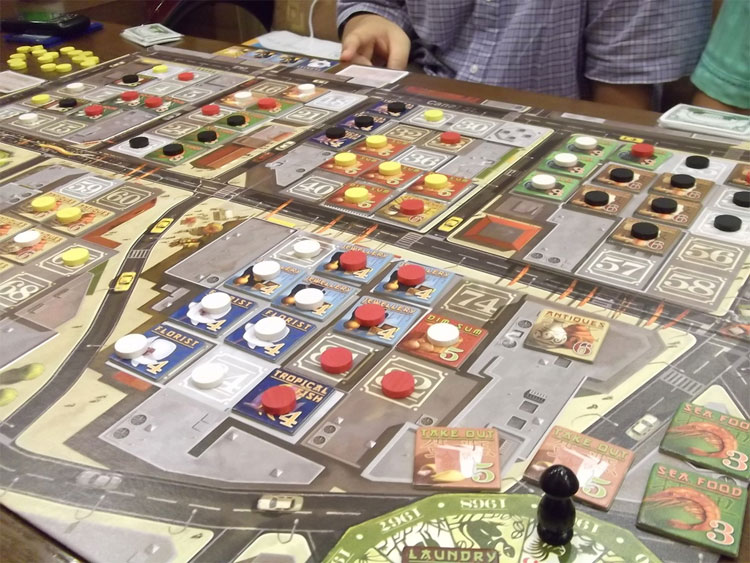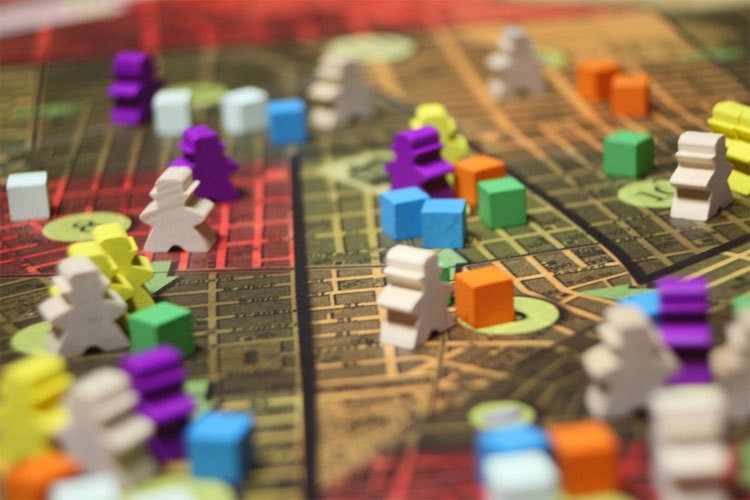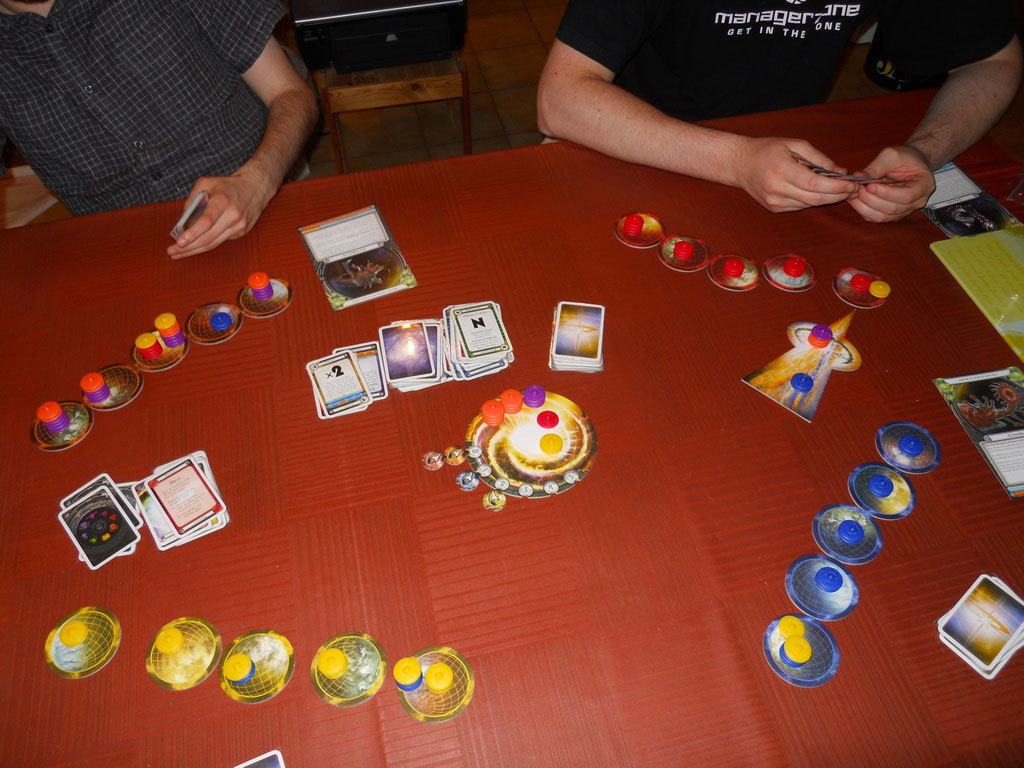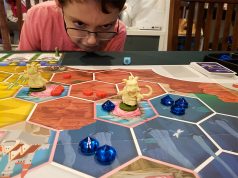
Some games test our skills at evaluating the abstract movement of playing pieces on a board. Some games judge a player’s ability to calculate a winning move mathematically. The art of haggling is something that few games tackle. Even fewer do them well. Knowing how a game makes negotiation enjoyable is key to discovering those games which craft a story within the abilities of the negotiators themselves.
At its core, a negotiation game is about players competing for different objectives and whether one can obtain the better value for what is given or whether or not players can find an increase in position through peace before conflict forces players to pay a cost. The following three games follow this formula closely, each with a very different theme.
Chinatown
One game on the economic end of the scale is Chinatown. Players represent Chinese immigrant businesses in the late 1960s and early 1970s of San Francisco. The nature of the negotiation comes from the variable business options and location options presented to each player. In order to make the most money, players must trade to collect multiple business tiles of the same type and acquire the right locations to place those businesses.
Players must not only evaluate locations, but they also must determine the long term benefit of certain business ventures over others. Because players can trade anything, the open nature of the negotiation is very organic. The lack of rules covering negotiation aids the entertainment value because deals can be structured and enforced depending on the players themselves. Every game of Chinatown has its own personality composed of the tactics in negotiation and imaginative deal structures the players come up with.

Tammany Hall
The second game that revels in players trading position takes place on the other side of the United States and a hundred years earlier. Tammany Hall has players collecting votes from immigrants occupying neighborhoods as New York booms during the Industrial Revolution. Tammany Hall overlays an area control conflict on top of play, giving players the option to cooperate, or be forced to pay bargaining chips to control certain districts of the city.
If a player trades away too many bargaining chips or fails to judge the right moment to negotiate, they may be victim to other players running roughshod over them. In Tammany Hall, the negotiation is also notable for how open it is. Players can make grand deals and the fact that all negotiation must end directly with a complete winner and loser drives the conflict.

Cosmic Encounter
The last game in this roundup throws players against each other. It doesn’t allow players to be passive participants in conflict; it makes them fight by placing them in opposition. In Cosmic Enounter, each turn one player is required to attack another player, unless the players agree to negotiate. What makes the negotiation tricky is that each player can offer to let other players in on the conflict, so negotiation then becomes a dance between the needs of the main combatants and the conditional offers of other players to aid either side.
In Cosmic Encounter, negotiation is fierce and loyalties are tested since, at some point, each player will likely come into conflict with multiple opponents. It is very difficult to sit back and passively win the game without taking a side at some point or another. Navigating allegiances and the cost of each with negotiation on every turn makes it crucial to side with the players who have the right consensus (or bluffing) skills.

If you’re wading into the arena of negotiation games, take the time to consider what premise of negotiation you desire. Some games deliver negotiation because a conflict demands it in the moment of play. Some games are more subtle with players given more latitude to structure deals. Whatever you seek, be sure that the style of negotiation matches your group’s definition of fun.



















